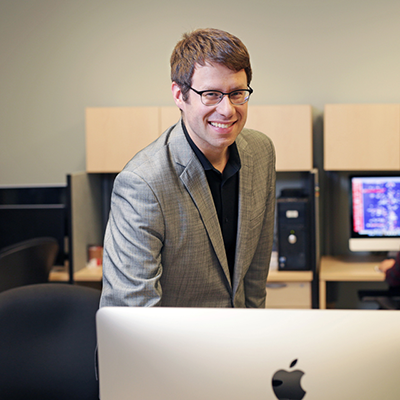
Dr. Mathieu Lavallée-Adam’s algorithms to improve the understanding of protein interactions in human cells could open the door to better drug treatments for an array of diseases.
Although mass spectrometry is a useful tool for looking at how proteins behave in cells, the data it provides are complex and full of “noise” that makes it hard to extract the most useful information. Dr. Lavallée-Adam’s research focuses on the creation of computational tools such as algorithms that filter out non-useful data and assign high-confidence scores to the data that accurately show how proteins are interacting and forming protein complexes.
A number of diseases are caused by proteins misfolding in cells (often as a cause of genetic mutation), and identifying these proteins and their rogue interactions is a vital element of developing drugs to treat the problem. Dr. Lavallée-Adam’s algorithms have helped identify the protein interactions related to cystic fibrosis and test how effectively they can be prevented with different drugs.
His computational software tools also help identify the connections between genetic factors and resulting protein behaviour, a breakthrough that could help develop drugs to treat diseases such as cancer and leukodystrophy (a genetic disease affecting the brain and spinal cord).
Dr. Mathieu Lavallée-Adam’s outstanding research won him a prestigious 2017 Polanyi Award in Chemistry.


